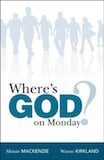This is Your Life: Questions for Personal Pondering
Book / Produced by Individual TOW Project member
The exercises and questions below are designed to help you consider your own development and its impact on where and how you serve.
A. General age and stage issues:
Think about the stage of life you are at and how that affects the way you live. What are the opportunities unique to this time of life? What are the limitations of this stage? How can you make both opportunities and limitations work for you?
Consider those you relate closely to – family and friends. What ages and stages are they at? How does this impact on your own SoulPurpose? (Note: The families we live in are systems just as our bodies are, and what happens to one member affects what happens to the others.)
Make a time line of your life, marking in at least every five years. Think back over your life, and identify some of the different stages. Did you find crisis points at some of the ages and stages mentioned in this chapter? In light of what you have learned here, what are the changes/crises in your life that can be understood as part of natural maturation and development? [Note: keep the copy of your time line. In chapter 12 we will suggest you look at it again.]
If you recognise yourself to be at a crossroad in one or more areas of your life, take some time out to reflect and pray it through. (We urge you to do this, even if other commitments make it difficult to find time. When you fail to pay attention to a transition time, the discomfort will not go away. It will continue to surface in your life.)
If you are in the midst of a transition, recognise that any feelings of grief and discomfort you experience at this time are quite natural. If you find yourself continually stuck and unable to move on, approach someone you trust – a friend, minister, or counsellor – to talk things over.
Note: All the hints for dealing with transitions that we will cover in the next section of this book are also relevant for adapting to different ages and stages.
B. Faith Stage issues
Where do you think you are in your faith development? (Remember this is a very subjective call and most of us oscillate.) Why do you think you’re where you’re at?
How is your Christian faith different now to 5 years ago? 10 years ago? 20 years ago?
In what ways are you yourself now different?
Think about the way you see the world and your role in it. How is this different now from the way it has been in the past?
In what ways have your temperament and background helped shape and influence your faith?
How has your particular experience of church, parents and other religious authority figures early in your life, shaped your later faith responses and choices?
Can you identify any experiences, insights, points of growth, relationships, etc., that have contributed to the development of your faith over the years? (Or to put this another way, what factors have caused you to grow in your faith?)
Can you identify ways in which your image of God has been shaped both positively and negatively by people who have had an impact on your life?
Some people have grown up with a black-and-white closed-box mindset, where to question one belief is to question everything. Others have been raised with strongly grounded beliefs but still an openness for movement and debate. Has your experience created space for you to ask questions and to develop your own understanding of things, or not?
Feedback from friends: personal reflection in a small group
Take time in your group to discuss the following questions, allowing each member opportunity to identify his/her own experiences and insights.
How is your Christian faith different now to 5 years ago? 10 years ago? 20 years ago?
In what ways are you yourself now different?
What are some of the best things you have learnt in life? (Both your own personal discoveries, and insights you have gained from others.)
Do you have difficulty accepting people at a different “stage of faith”?
What are the problems for a church that arise from having and encouraging people at different stages of life and of faith? What are some ways of coping with those problems?
Resources
Life Stages
Gail Sheehy, Passages: Predictable Crises of Adult Life (Bantam/Dutton, 1974)
Gail Sheehy, New Passages: Mapping Your Life Across Time (HarperCollins, 1995)
Faith Stages
Alan Jamieson, Faith Development: Resources for those on the journey
This is a good introduction to the subject of faith stages, using a variety of different sources.
James Fowler, Stages of Faith (San Francisco: Harper & Row, 1981)
This is Fowler’s original book on faith stages. (He has written a number of others since.)





